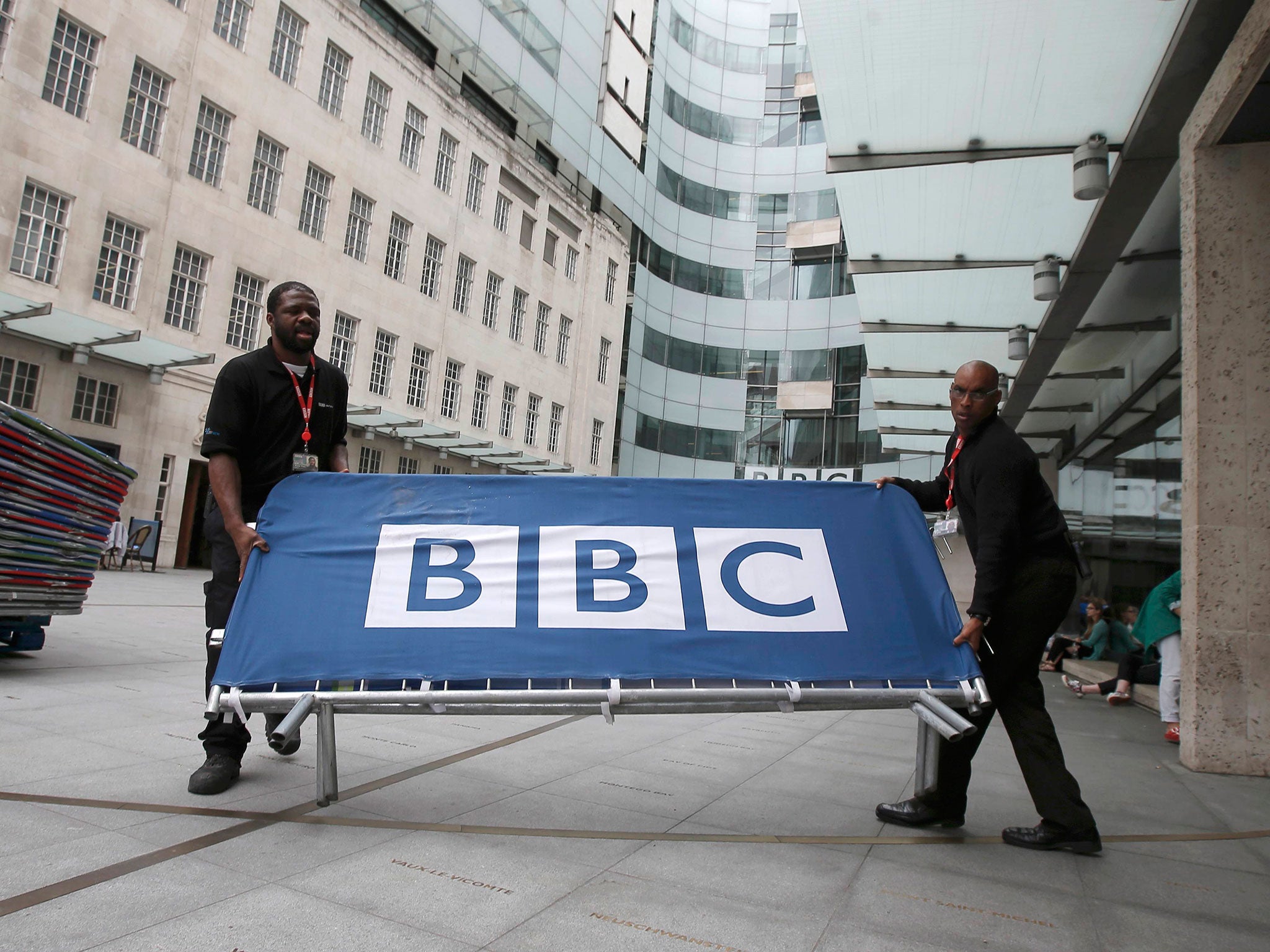How I would save the BBC: Two writers have their say on the future of the corporation
Become more cultural or commercialise entirely? Two very different plans for our public broadcaster


Fiona Sturges; Radio critic of The Independent
1. At £2.80 per week, the licence fee is a steal. For this we get unrivalled news coverage, David Attenborough, Radio 4, the World Service, Blue Peter, Bake Off, Dr Who, Wimbledon, Test Match Special. Oh, and Sherlock. But given the under-25s are swapping TVs for tablets, the licence fee is not sustainable in the long-term, and a new model is needed. This might be a subscription-based service, or a basic fee with voluntary add-ons. Either way, the BBC needs to come up with a plan before the government does.
2. Big names can be vital, we get it. There are times when serious talent is required to turn a new drama/documentary/entertainment show into an event. But did the BBC chat-show die when Jonathon Ross left? No. Will Top Gear make money sans Clarkson? Of course. The Beeb needs to stop paying obscene sums to retain stars and concentrate on developing new talent. Remember Matt Smith’s arrival on Dr Who? “Never heard of him”, we muttered darkly, before agreeing, two episodes in, that he was the quintessential Doctor.
3. Boost arts and culture programming. BBC radio is reasonably strong here but television has long lagged behind. The Voice has taken a lot of flak as an example of lowest-common-denominator fare and for being ludicrously expensive. But rather than do away with this kind of weekend entertainment (crucial for family viewing), some of that budget should be redirected into more challenging arts coverage. You can’t rely on music festivals, be it Glastonbury or The Proms, to plug the gaps. Historically, the BBC has been the go-to place for ideas and expertise. This needs to be reflected in the schedules with new, unapologetically clever shows.
4. The corporation doesn’t need to be the biggest but it does need to be the best. While the “something for everyone” ethos is laudable (and, to a degree, achievable), some pruning is in order and there are things the public will be able to do without. For instance, streaming services and global stations such as Apple’s Beats 1 look set to make Radio 1 redundant, while the web operation could easily take a trim. And do they really need to send 300 staff to Glastonbury?
5. For the love of God, stop apologising. In light of the Savile scandal, executive pay-offs and the shambles that was the £100m Digital Media Initiative, these have been dark times for the BBC and some soul-searching has been in order. Even so, politicians’ desire to give it a hiding seems rich when they are also dealing with historical sex-abuse allegations and enjoying generous pay rises. The BBC needs transparency, a clear and robust vision and, crucially, the courage of its convictions to face down those who would tear it apart.
Ryan Bourne; Institute of Economic Affairs
1. The BBC faces similar challenges today to radio when television was invented. Having been dominant, and with revenues guaranteed through the licence fee, the BBC feels it must do everything to justify its existence. Yet many commercial and internet-based operators have shown it’s possible to thrive without compulsory charging. About 90 per cent of BBC television is indistinguishable from commercial rivals, and many other broadcasters, radio stations and internet outlets produce public service-like content. What’s more, digital decoders and online log-ins mean it’s easy to exclude people who haven’t paid. There is no rational case for a public service broadcaster funded by a hypothecated television tax.
2. The Reithian vision of public education and community has long ceased to exist. People consume a wider range of content and at different times. While there’s legacy affiliation to some long-standing programmes (The Archers, Songs of Praise et al), for the young the BBC is just another broadcaster. We now know social capital and community-building can be delivered via market alternatives. Google, Facebook and Twitter bring people together, and often the water-cooler conversations these days are about market-produced programmes such as Game of Thrones.
3. For all these reasons, the licence fee should be abolished and the BBC privatised. Having to raise its own funds will make the BBC more accountable to its viewers, and allow it to specialise in what it can do best. Abolishing the licence fee would negate the immoral prosecutions of almost 200,000 people per year for non-payment, and would provide a level playing field for competitors, especially in local and internet news.
4. There may well be a case for some limited public service broadcasting. But slimming down the BBC to provide things the market won’t deliver would be a huge error. Given its brand, expertise and back catalogue, the BBC is well placed to be a global media entity. Instead of imposing a plan for the BBC, limited public service content should be funded through general taxation and delivered through the Arts Council on a competitive basis. The BBC could bid for this content as a commercial entity. But it wouldn’t be limited to doing it. The BBC would be allowed to operate and charge as it saw fit. It would be for the Arts Council to aim to get best value for taxpayers.
5. The BBC is highly politicised, because of its privileged position and method of funding. The BBC’s huge share of the news market means it can affect public opinion – making it sensitive to accusations of bias. This would not be an issue if it became a commercial entity.
Join our commenting forum
Join thought-provoking conversations, follow other Independent readers and see their replies
Comments